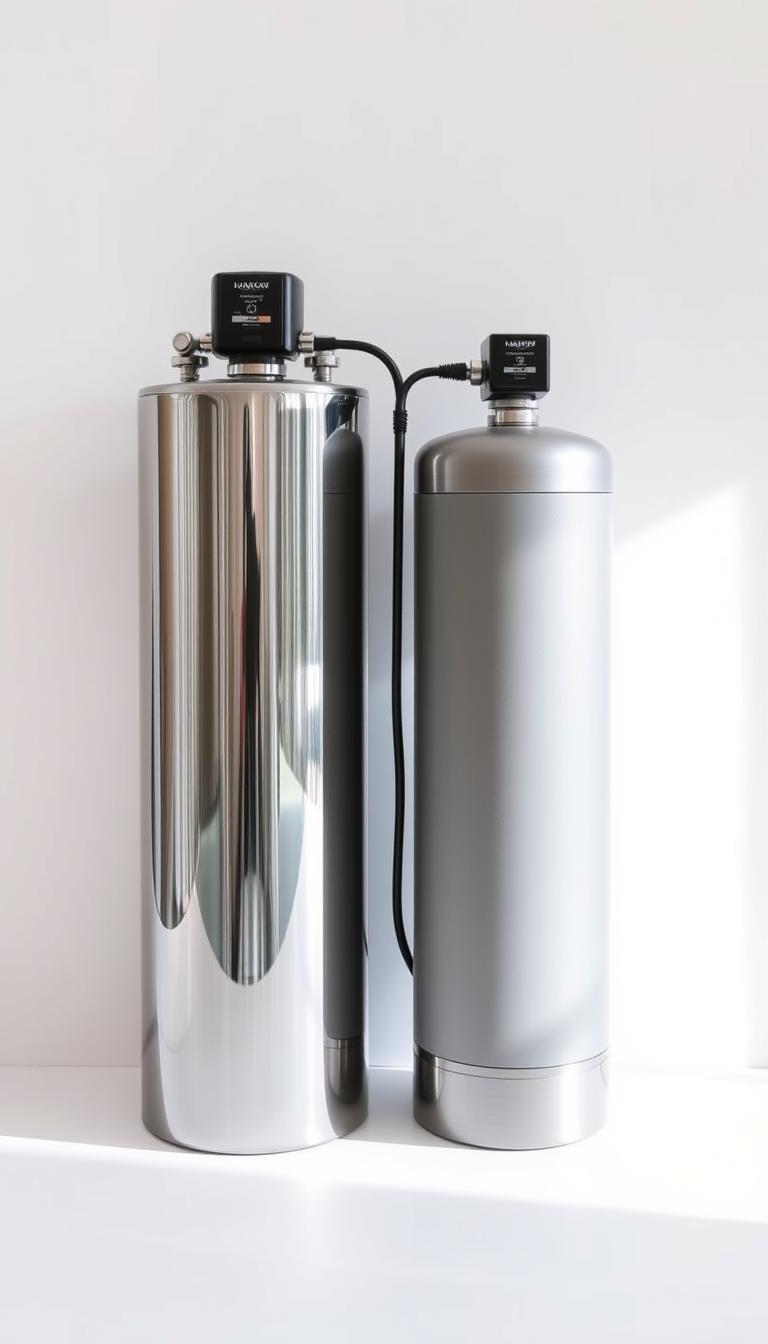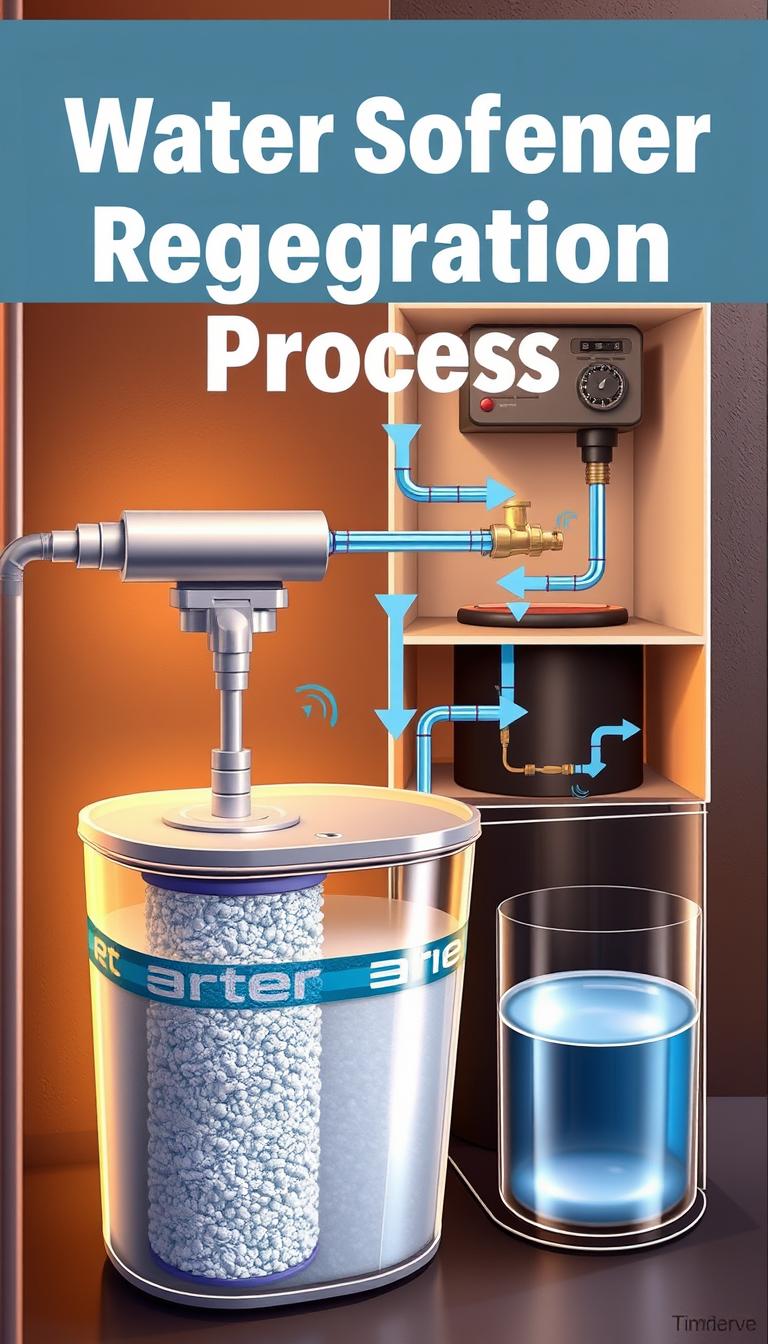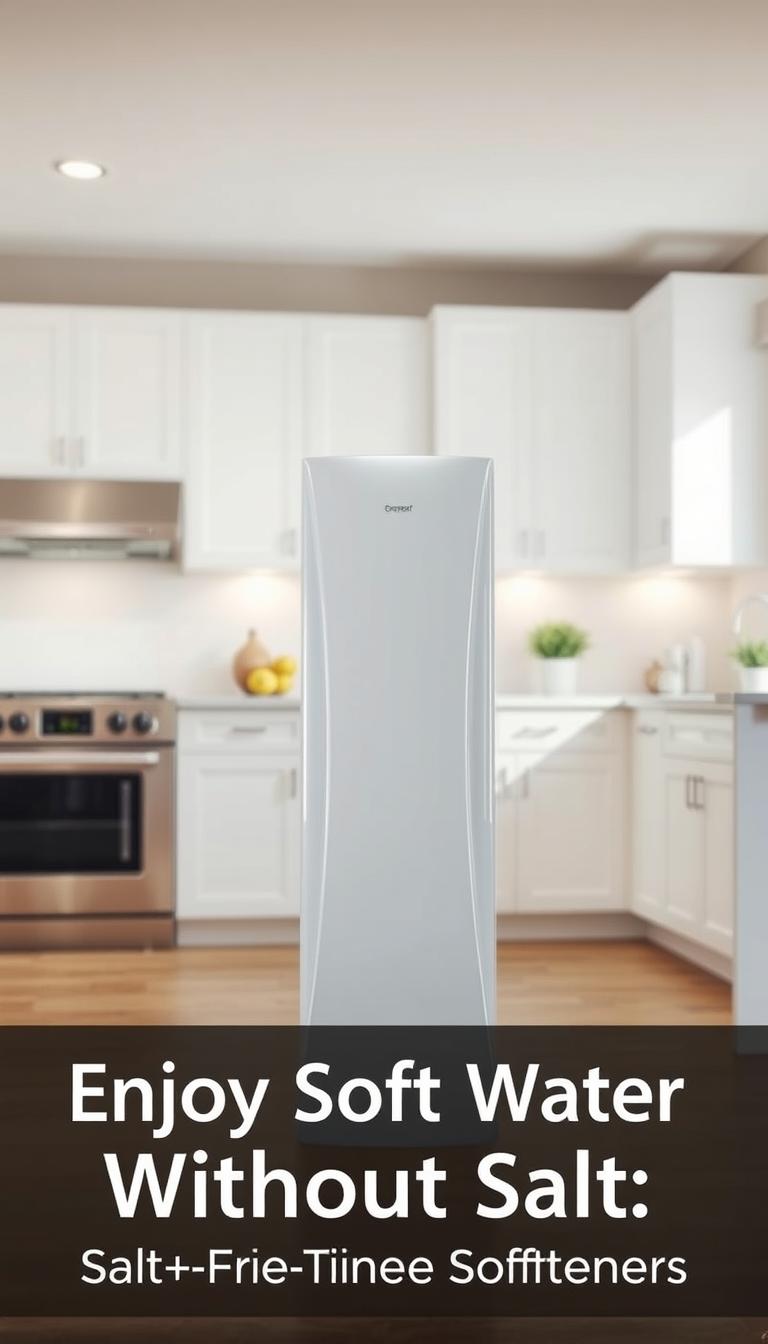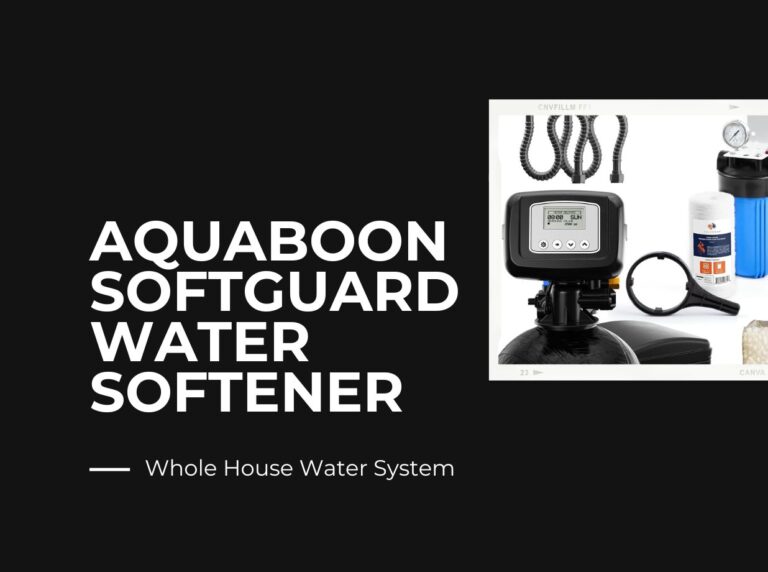Understanding Potassium Chloride in Home Water Softening
Are you aware of the impact of hard water on your household appliances and skin? Hard water can lead to limescale buildup, reducing the efficiency of your water heater and affecting the softness of your clothes. One effective solution is using potassium chloride in home water softening systems.
Potassium chloride is used as an alternative to sodium chloride, offering several benefits, including reduced sodium intake and gentler effects on the environment. By removing calcium and magnesium ions from the water, potassium chloride makes water softer and more manageable for household use.
Key Takeaways
- Potassium chloride is a viable alternative to sodium chloride in water softening systems.
- Using potassium chloride reduces sodium intake and is more environmentally friendly.
- It effectively removes calcium and magnesium ions, making water softer.
- Potassium chloride can improve the efficiency and longevity of household appliances.
- It is a suitable option for households with specific dietary needs or restrictions.
What is Potassium Chloride in Home Water Softening?
Potassium chloride works similarly to sodium chloride in water softeners, utilizing the ion exchange process to remove hard minerals from water. This process is crucial for reducing the hardness of water, which can cause scaling in pipes and appliances.
The ion exchange process involves exchanging sodium or potassium ions for calcium and magnesium ions, which are the primary causes of water hardness. Potassium chloride is considered a more environmentally friendly alternative to sodium chloride because it can be less harmful to the environment when discharged.
According to the Water Quality Association, “Potassium chloride can be used as an alternative to sodium chloride in water softeners, offering benefits for people on sodium-restricted diets.” This makes it an attractive option for households with specific health considerations.
When comparing potassium chloride vs. salt in water softeners, several factors come into play, including effectiveness, cost, and environmental impact. While potassium chloride may be more expensive than sodium chloride, its benefits for households with sodium-restricted diets and its potentially lower environmental impact make it a worthwhile consideration.
The effectiveness of potassium chloride in softening water is comparable to that of sodium chloride. However, the choice between the two often depends on individual circumstances, such as health needs and environmental concerns.
- Potassium chloride is a viable alternative for those on sodium-restricted diets.
- It offers a potentially lower environmental impact compared to sodium chloride.
- The ion exchange process is key to how potassium chloride works in water softeners.
In conclusion, potassium chloride is a valuable option for home water softening, offering a balance between effectiveness and environmental responsibility. As homeowners consider their water softening needs, understanding how potassium chloride works can help inform their decisions.
The Science Behind Hard Water and Softening Processes
The effectiveness of water softeners depends on understanding the science behind hard water and its softening processes. Hard water contains high levels of minerals such as calcium and magnesium, which cause scaling in pipes and appliances, reducing their efficiency and lifespan.
To comprehend how water softeners work, it’s essential to understand the composition of hard water and the process of softening it. Hard water is characterized by its high concentration of minerals, primarily calcium and magnesium. These minerals are responsible for the “hardness” of water, leading to issues such as scale buildup in plumbing and appliances.
Common Minerals in Hard Water
Hard water is primarily composed of calcium and magnesium ions. These minerals are absorbed from the earth as water passes through rocks and soil. The presence of these minerals is what differentiates hard water from soft water.
| Mineral | Effect on Water | Impact on Household |
|---|---|---|
| Calcium | Causes scaling | Reduces appliance efficiency |
| Magnesium | Contributes to water hardness | Affects soap effectiveness |
How Water Softeners Remove Hardness
Water softeners remove the minerals that cause water hardness through a process known as ion exchange. This process involves exchanging sodium or potassium ions for calcium and magnesium ions in the water. For those interested in learning more about water softening, visiting https://www.luminoruv.com/education/water-softening/ can provide additional insights.
The ion exchange process is crucial for understanding how water softeners work. By replacing calcium and magnesium ions with either sodium or potassium ions, water softeners effectively reduce the hardness of water, making it more suitable for household use.
For a comprehensive comparison, let’s examine the differences between using potassium chloride and sodium chloride in water softeners. While both are effective, they have different implications for health, the environment, and cost.
How Potassium Chloride Works in Water Softeners
Understanding how potassium chloride works in water softeners is essential for homeowners looking for a healthier alternative to sodium-based softeners. Potassium chloride water softeners operate on a simple yet effective principle, making them an attractive choice for many households.
The Ion Exchange Process
The ion exchange process is the core mechanism by which water softeners remove calcium and magnesium ions, which cause water hardness. In a potassium chloride water softener, potassium ions are exchanged for these hardness ions. This process occurs within the softener’s resin tank, where resin beads coated with potassium ions attract and hold onto calcium and magnesium ions as hard water passes through.
The ion exchange process can be broken down into two main steps:
- The resin beads capture calcium and magnesium ions, releasing potassium ions into the water.
- The now-softened water is then distributed throughout the household.
Regeneration Cycle with Potassium Chloride
Over time, the resin beads become saturated with calcium and magnesium ions and need to be regenerated. This is where potassium chloride comes into play. During the regeneration cycle, a potassium chloride solution is used to recharge the resin beads, displacing the captured hardness ions and replenishing the potassium ions.
| Regeneration Step | Description |
|---|---|
| Backwashing | The resin bed is expanded and cleaned to remove dirt and debris. |
| Brine Draw | A potassium chloride solution is drawn into the resin tank. |
| Regeneration | The potassium chloride solution recharges the resin beads with potassium ions. |
| Rinse | Excess potassium chloride is flushed out, and the resin is prepared for service. |
By utilizing potassium chloride in the regeneration cycle, these water softeners provide a healthier and more environmentally friendly alternative to traditional sodium chloride-based systems.
Potassium Chloride vs. Sodium Chloride: A Comprehensive Comparison
Potassium chloride and sodium chloride are two common alternatives used in water softeners, each with its own set of advantages and disadvantages. The decision between these two options depends on several factors, including effectiveness, cost, environmental impact, and health considerations. Understanding these differences is crucial for making an informed choice.
Effectiveness in Softening Water
Both potassium chloride and sodium chloride are effective in softening water through the ion exchange process. They work by replacing calcium and magnesium ions, which cause water hardness, with either potassium or sodium ions. The effectiveness of both salts is comparable, with the softening process resulting in similarly softened water.
Cost Differences
One of the significant differences between potassium chloride and sodium chloride is their cost. Generally, potassium chloride is more expensive than sodium chloride. This higher cost can be a deterrent for some homeowners, despite the benefits associated with potassium chloride. The cost difference is an essential factor to consider when deciding between the two.
Environmental Impact
Potassium chloride is considered more environmentally friendly than sodium chloride. When potassium chloride is used in water softeners, it has a lower impact on the environment, particularly in terms of soil and water contamination. This aspect makes potassium chloride a preferable choice for environmentally conscious homeowners.
Health Considerations
For individuals on low-sodium diets, potassium chloride offers a healthier alternative to sodium chloride. By using potassium chloride in water softeners, these individuals can significantly reduce their sodium intake from softened water. This benefit is particularly important for people with specific dietary restrictions or health conditions.
Benefits of Using Potassium Chloride in Water Softening
Switching to potassium chloride in your water softener can have numerous benefits for your health and the environment. Potassium chloride is a viable alternative to traditional sodium chloride, offering several advantages that make it an attractive choice for homeowners.
Health Advantages for Sodium-Restricted Diets
For individuals on sodium-restricted diets, potassium chloride is a healthier option. It allows those with sodium sensitivity or restrictions to enjoy the benefits of softened water without the negative health impacts associated with sodium. Potassium chloride can significantly reduce sodium intake, making it an ideal choice for households with members who have hypertension or other heart health issues.
Plant and Soil Benefits for Home Gardens
Potassium chloride is also beneficial for home gardens. Unlike sodium chloride, which can harm plants and soil over time, potassium chloride can actually provide potassium, an essential nutrient for plants. This can lead to healthier plants and improved soil quality, making it a great option for gardening enthusiasts.
Reduced Environmental Impact on Waterways
The environmental benefits of potassium chloride are another significant advantage. When sodium chloride is used in water softeners, it can eventually make its way into local waterways, potentially harming aquatic life. Potassium chloride, on the other hand, is generally considered to be less harmful to the environment. By choosing potassium chloride, homeowners can reduce their environmental footprint.
| Benefits | Potassium Chloride | Sodium Chloride |
|---|---|---|
| Health Impact | Suitable for sodium-restricted diets | May exacerbate sodium-related health issues |
| Gardening Benefits | Provides potassium, beneficial for plants | Can harm plants and soil |
| Environmental Impact | Less harmful to aquatic life | Can harm aquatic life and waterways |
In conclusion, the benefits of using potassium chloride in water softening are multifaceted, ranging from health advantages to environmental benefits. By understanding these benefits, homeowners can make informed decisions about their water softening needs.
Potential Drawbacks and Considerations
Understanding the potential drawbacks of potassium chloride is essential for making an informed decision about its use in water softening systems. While it offers several benefits, including health advantages for those on sodium-restricted diets and environmental benefits, there are also considerations to be taken into account.
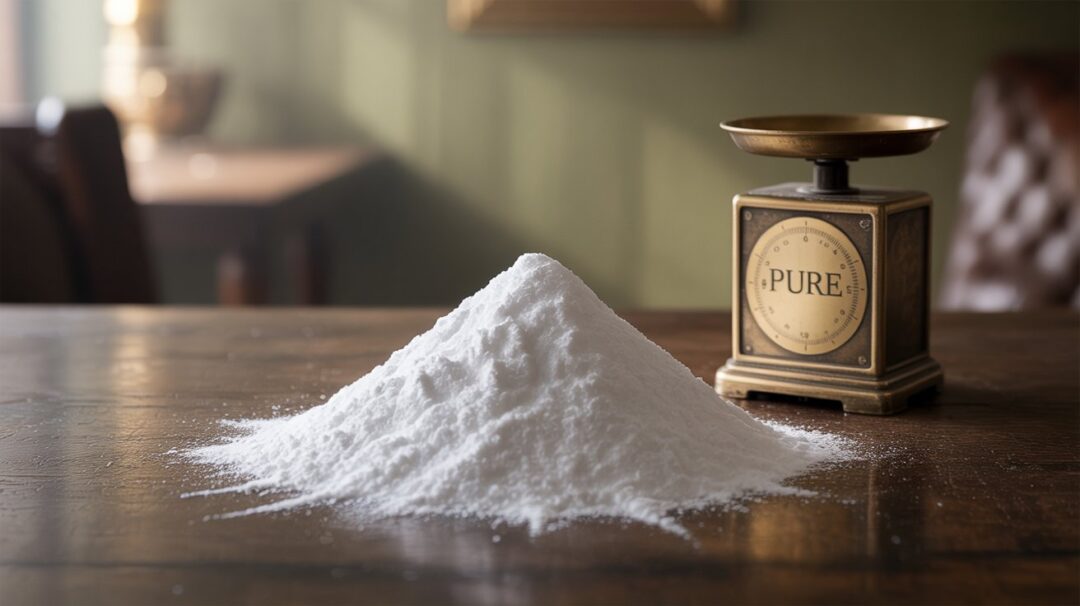
Higher Cost Factors
One of the primary considerations is the cost. Potassium chloride is generally more expensive than sodium chloride, which can be a significant factor for households on a budget. The cost difference can add up over time, especially for larger households with higher water usage. It’s essential to weigh the health and environmental benefits against the increased cost to determine if potassium chloride is the right choice for your water softening needs.
Availability Issues
Another consideration is the availability of potassium chloride. While it is widely available in many areas, there may be regions where it is harder to find than sodium chloride. This can make it necessary to purchase online or through specialty stores, potentially increasing the overall cost due to shipping fees. Homeowners should consider the availability of potassium chloride in their area before making a decision.
System Compatibility and Efficiency
The compatibility of potassium chloride with your existing water softening system is also a crucial consideration. Most modern water softeners can use either sodium chloride or potassium chloride, but it’s essential to check the manufacturer’s recommendations. Additionally, the efficiency of the system may be affected by the type of salt used. Potassium chloride can sometimes require adjustments to the system’s settings to optimize its performance.
In conclusion, while potassium chloride offers several benefits, it’s crucial to consider the potential drawbacks, including higher costs, availability issues, and system compatibility. By understanding these factors, homeowners can make an informed decision about whether potassium chloride is the right choice for their water softening needs.
Top Potassium Chloride Products for Home Water Softening
For those looking to switch to potassium chloride for their water softening needs, there are several excellent options to consider. Potassium chloride has emerged as a popular alternative to traditional sodium chloride in water softening systems, offering various benefits, including health advantages and environmental benefits.
Morton Potassium Chloride Pellets
Morton is a well-known brand in the water softening industry, and their potassium chloride pellets are designed for high efficiency and effectiveness. These pellets are pure and compact, making them a reliable choice for maintaining your water softener. Morton’s product is compatible with most water softening systems, ensuring a smooth transition for those switching from sodium chloride.
Diamond Crystal Potassium Chloride
Diamond Crystal offers high-quality potassium chloride that is gentle on systems while being tough on hard water minerals. Their product is designed to provide a consistent and reliable softening process, making it an excellent choice for homeowners seeking a hassle-free experience.
Nature’s Own Potassium Chloride Crystals
Nature’s Own potassium chloride crystals are another popular option among homeowners. These crystals are known for their high purity and effectiveness in regenerating water softeners. They are also environmentally friendly, making them a great choice for those concerned about their ecological footprint.
K-Life Potassium Chloride Water Softener Pellets
K-Life potassium chloride water softener pellets are designed to provide a healthy alternative to sodium chloride. These pellets are compact and easy to use, making them a convenient option for maintaining your water softener. K-Life products are also known for their effectiveness in reducing scale buildup and improving water quality.
Choosing the Right Product for Your System
When selecting a potassium chloride product for your water softener, it’s essential to consider compatibility and efficiency. Check your system’s specifications and look for products that are designed to work with your particular model. For more information on choosing between water softener salt and potassium, you can visit Lowe’s buying guide, which provides a comprehensive comparison.
Installation and Maintenance Tips for Potassium Chloride Systems
To get the most out of your potassium chloride water softener, proper installation and maintenance are crucial. This ensures that your system operates efficiently, providing you with the benefits of softened water without the drawbacks associated with sodium chloride.
Converting from Sodium to Potassium
When converting your water softener from sodium chloride to potassium chloride, several adjustments are necessary. First, it’s essential to clean out the old salt or resin from the system to prevent contamination. Check your manufacturer’s guidelines for specific instructions on how to do this safely. After cleaning, you can refill the system with potassium chloride pellets or crystals.
It’s also important to consider the regeneration cycle, which may need to be adjusted. Potassium chloride can be less efficient than sodium chloride in some systems, potentially requiring more frequent regeneration. Consult your system’s manual or contact a professional to determine the best settings for your specific model.
Optimal Settings and Adjustments
Optimal performance of your potassium chloride water softener depends on correct settings. The hardness of your water, the size of your household, and your water usage patterns all play a role in determining these settings. Understanding the true cost of installing a home water can help you make informed decisions about your system’s configuration.
| Setting | Description | Recommended Value |
|---|---|---|
| Regeneration Frequency | How often the system regenerates | Every 3-5 days |
| Water Hardness | Level of calcium and magnesium in water | Check with local water authority |
| System Capacity | Total amount of hardness the system can remove before regeneration | Varies by model |
Regular Maintenance Requirements
Regular maintenance is vital to ensure your potassium chloride water softener continues to function effectively. This includes checking for salt bridges, cleaning the brine tank, and inspecting the system for any signs of wear or malfunction. Regular checks can prevent costly repairs and ensure consistent water quality.
“Regular maintenance not only prolongs the life of your water softener but also ensures that your water remains soft and healthy for consumption.”
Troubleshooting Common Issues
Despite proper maintenance, issues can arise. Common problems include inefficient softening, salt bridges, and system leaks. If you notice your water isn’t softening properly, check the potassium chloride level, inspect for blockages, and ensure the system is regenerating correctly. For more complex issues, consulting a professional is advisable.
Conclusion
Potassium chloride is a viable alternative to sodium chloride for water softening, offering several benefits, including health advantages for those on sodium-restricted diets and reduced environmental impact on waterways.
Understanding what is potassium chloride in home water softening is crucial for homeowners looking to make an informed decision about their water softening needs. The benefits of using potassium chloride in water softening, such as improved soil and plant health for home gardens, make it an attractive option.
While there are potential drawbacks, including higher cost factors and availability issues, many homeowners find that the advantages outweigh the disadvantages. By choosing the right potassium chloride product and following proper installation and maintenance tips, homeowners can enjoy the benefits of softened water without the negative effects of sodium chloride.
Ultimately, potassium chloride offers a effective solution for home water softening, providing a healthier and more environmentally friendly alternative to traditional sodium chloride-based systems.
Frequently Asked Questions
What is potassium chloride used for in home water softening?
Potassium chloride is used as an alternative to sodium chloride in water softeners. It works by removing calcium and magnesium ions from hard water, replacing them with potassium ions, thus softening the water.
How does potassium chloride work in water softeners?
Potassium chloride works through an ion exchange process. The potassium chloride is used to regenerate the resin beads in the water softener, which then attract and hold calcium and magnesium ions, releasing potassium ions into the water.
What are the benefits of using potassium chloride in water softening?
The benefits of using potassium chloride include being a healthier alternative for those on sodium-restricted diets, being beneficial for plants and soil in home gardens, and having a reduced environmental impact on waterways compared to sodium chloride.
How does potassium chloride compare to sodium chloride in water softeners?
Potassium chloride is generally more expensive than sodium chloride but offers health and environmental benefits. It is also less effective at softening water per pound than sodium chloride, meaning more may be needed.
What are the top potassium chloride products for home water softening?
Some top products include Morton Potassium Chloride Pellets, Diamond Crystal Potassium Chloride, Nature’s Own Potassium Chloride Crystals, and K-Life Potassium Chloride Water Softener Pellets. The best product can depend on the specific water softener system being used.
What are the potential drawbacks of using potassium chloride?
Potential drawbacks include higher costs compared to sodium chloride, potential availability issues, and the need to ensure the water softener system is compatible with potassium chloride.
How do I convert my water softener from sodium chloride to potassium chloride?
To convert, you should first check that your system is compatible with potassium chloride. Then, you’ll need to clean the resin bed and adjust the settings according to the manufacturer’s instructions for using potassium chloride.
What maintenance is required for a potassium chloride water softener?
Regular maintenance includes checking and adjusting the salt level, cleaning the brine tank, and ensuring the system is set correctly for optimal performance. Regular checks can help prevent common issues.
Are there any health considerations when using potassium chloride in water softening?
Potassium chloride is a healthier alternative for individuals on sodium-restricted diets. However, individuals with potassium-restricted diets should consult their healthcare provider, as it can increase potassium levels in water.




